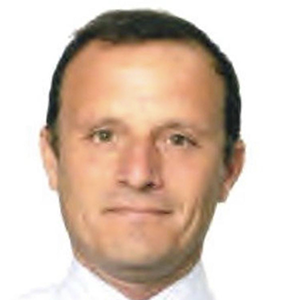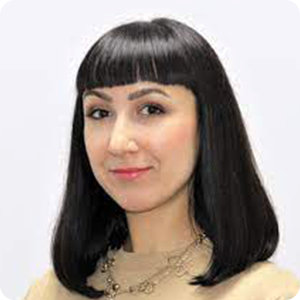COP28 in Dubai enters its final week, heatwaves worldwide by 2090 and earthquake hits the Philippines. Here is what you missed from last week’s headlines in the international development sector.
COP28 in Dubai enters final week, negotiations ramp up on emissions cuts, fossil fuels
After a break, COP28 continues its work, also the day talks on an outcome text kick into high gear. Negotiators are aiming to agree on how to bolster emissions-cutting targets set by the Paris Agreement and what to do about the future of fossil fuels like oil, gas, and coal.
UN climate chief Simon Stiell told a press conference that the text is “a grab bag of wish lists and heavy on posturing.” He added: “All governments must give their negotiators clear marching orders. We need the highest ambition, not point scoring or lowest common denominator politics.”
UN chief António Guterres has said the Conference of Parties to the UN Convention on Climate Change (UNFCCC), which facilitates these annual conferences, “must commit countries to triple renewables capacity, double energy efficiency, and bring clean energy to all, by 2030.”
See also: Unveiling COP28: A critical meeting to address climate change
Mr. Guterres reiterated calls for a complete phase-out of fossil fuels to limit temperature rise to 1.5 degrees Celsius – while ensuring that the transition is equitable and just.
As the delegates head into the home stretch – COP28 is expected to close on 12 December – here’s a snapshot of what’s happened so far and what’s ahead.
Up to 2.8 billion people possibly exposed to heatwaves worldwide by 2090: New IOM analysis
Up to 2.8 billion people could be exposed to heatwaves by 2090 under a high-warming scenario, more than double that in a low-warming scenario, according to a new analysis from the International Organization for Migration’s (IOM) Global Data Institute (GDI).
While the ability to foresee the effects of climate change on population movements worldwide remains limited, almost half of the people potentially affected by heatwaves (up to 1.3 billion) are projected to live in Southern Asia, a region that has witnessed 59.7 million climate-related displacements in the past decade according to the Internal Displacement Monitoring Centre.
The low and high warming scenarios represent different future trajectories in greenhouse gas concentrations, leading to a global temperature rise of likely below 2°C and of 3–4°C by 2100, respectively.
The GDI examines the relationship between climate hazards, population density, and socio-economic vulnerability of communities worldwide. These variables show the level of human exposure to climate hazards in the new Climate Mobility Impacts dashboard, an open-access interactive tool launched today on the Migration Data Portal.
Powerful earthquake hits the Philippines
CARE International is deeply concerned for the safety and mental health of the vulnerable communities, especially women and children, in Surigao del Sur, the southern part of the Philippines, following a powerful 7.5-magnitude earthquake that struck the region on 2 December 2023, at 10:37 PM (Philippine Standard Time).
The earthquake caused widespread damage, with tremors felt across Mindanao and parts of Visayas. The epicenter was located 25 kilometers deep, prompting a tsunami warning that led to immediate evacuations in coastal areas. Although the waves were minimal, and the alert was canceled, over 659 aftershocks, including several with magnitudes ranging from 1.4 to 6.2, have rattled the region since the quake.
There was also significant damage to infrastructure, forcing people to leave their homes and stay in evacuation centers. The full extent of the damage is still unfolding, but initial reports indicate that 2,600 people have been displaced and many others have been injured.
“CARE and partners are on the ground across affected areas to assess the damage and prepare to assist the hardest-hit communities,” said Reiza S. Dejito, CARE Philippines Director. “We are especially concerned about how this earthquake and its aftershocks have affected vulnerable groups, particularly women and children. Initial reports indicate psychological distress and panic among the affected population, as many residents are experiencing an earthquake of such severity for the first time. It has also been noted that numerous children were visibly distressed due to the incident.”
DevelopmentAid Editorials
Expert guide to consulting fees and per diems from DevelopmentAid recruiters
Various organizations seek consulting advice to benefit from professional guidance and assistance to accomplish project goals, improve operations, maximize aid efficiency, and avoid or resolve certain issues. However, since every organization and project is unique in its goals and the problems for which a solution is sought by using consulting services, the cost of this advice will also be specific to each.
Pricing goods is simpler than pricing services since it is easier to track the manufacturing costs for products. When it comes to services, valuing the time, skill, and expertise that contribute to providing those services is extremely individualized. This is why various consultants ask different fees and per diems. In this article, we dive into the recommendations and experience of DevelopmentAid Recruitment Solutions which recruits consultants on a regular basis and has in-depth knowledge of fees and per diems.
Can the war in Gaza trigger a global health crisis? | Experts’ Opinions
The health crisis in Gaza is worsening as the war between Hamas and Israel intensifies but the violence goes beyond inflicting the physical and mental harm usually caused in war zones. It also hampers the ongoing efforts to solve global health issues. Experts warn that this war is not just an international relations crisis but also a public health crisis that could lead to long-term consequences for humanity. Why and how can the war in Gaza become a global health crisis? Check the expert opinions cited below.
Key Takeaways:
- Israel’s blockade of Gaza, with no access to water, fuel, electricity, and essential supplies for over a month, poses a significant risk of waterborne illnesses such as cholera and typhoid.
- According to WHO reports (November 12), at least 521 people, including 16 medical workers, have lost their lives in 137 “attacks on health care” infrastructure in Gaza.
- The war is also resulting in mental health issues such as post-traumatic stress disorder among children, violating international conventions that protect children’s rights.
- Expert opinion: “Conflicts have the potential to escalate into global health crises due to their profound impact on healthcare systems, chronic conditions, mental health, and overall well-being.”
Major multilateral development banks and their global footprint
Globally, development banks have a significant impact on how nations manage their economies, societies, and environments. These institutions have the role of providing a combination of monetary resources, know-how, and strategic guidance to promote development, particularly in regions that stagnate and struggle with poverty and unstable economies.
The International Day of Banks (December 4th) is a call to action as well as a celebration of the accomplishments of the banking industry. Established by the UN in 2019, the event pushes financial institutions to continue developing, innovating, and adjusting to the shifting demands of a world economy that is changing at a rapid pace.
The World Bank, International Monetary Fund (IMF), European Bank for Reconstruction and Development, the Asian Development Bank (ADB), the African Development Bank (AfDB) and the Inter-American Development Bank (IDB) are among the organizations that play a crucial role in international development. How exactly do these banks finance development, eradicate poverty and promote a climate-resilient agenda? Let’s find out.
Here’s what else has happened
ADB: The Asian Development Bank (ADB) approved a $400 million policy-based loan to support the Government of Bangladesh in implementing its National Adaptation Plan, 2023–2050, and Nationally Determined Contributions 2021 Update to the Paris Agreement to achieve a climate-focused inclusive development.
Armenia: The World Bank announced that Armenia has been selected to receive a new grant from the State and Peacebuilding Umbrella Trust Fund to support the mental health and well-being of displaced children and adolescents from Nagorno-Karabakh region in over 200 schools across the country.
USAID: At COP28, USAID Administrator Samantha Power announced that USAID is committing more than $53 million for new low-carbon and climate-resilient activities in 23 cities in Asia, Africa, Latin America, and the Caribbean. These funds will provide resources to translate national climate ambitions into local action in urban areas.
Guterres: Secretary-General António Guterres highlighted the importance of the UN’s core humanitarian response fund to deploy quick and strategic resources to global crises globally.
Reports
Digital trade fuels Asia-Pacific’s growth, but progress is uneven
Digital trade holds massive promise for the Asia-Pacific region, but there’s still much to do to help vulnerable countries catch up, according to a new UN report launched at UNCTAD eWeek 2023.
The Asia-Pacific Trade and Investment Report 2023-2024, produced by UNCTAD, the UN Economic and Social Commission for Asia and the Pacific (ESCAP), and the UN Industrial Development Organization (UNIDO), highlights the region’s strong but uneven performance.
Overfishing in the Mediterranean and Black Sea falls to lowest level in a decade
The percentage of overfished stocks in the Mediterranean and Black Sea has fallen below 60 percent for the first time, following a decreasing trend that started a decade ago, according to a report launched.
While overfishing remains a concern, The State of Mediterranean and Black Sea Fisheries 2023 report (SoMFi 2023) records a drop of 15 percent in this figure over the last year, an improvement consistent with a continuous reduction in fishing pressure, which has fallen by 31 percent since 2012.
Novel meat and dairy alternatives could help curb climate-harming emissions – UN
What’s cooking? An assessment of the potential impact of select novel alternatives to conventional animal products focuses on three types of alternatives: 1) Novel plant-based meats, 2) Cultivated meat from animal cells, and 3) Protein-rich products derived through rapid fermentation by microorganisms. It is part of UNEP’s Frontiers series, which identifies and draws attention to emerging issues of environmental concern.
Events
The list of major upcoming events in development sector in December 2023
Keep up to date on key events about emerging funding strategies, environmental policies, climate change, technological development, labour standards and energy issues in the development sector via our compiled list.
Track events hosted by reputable international organisations, donors, NGO’s and IFIs that bring together the biggest change-makers and stakeholders in international development cooperation.
Save the date to register and attend the upcoming events in December 2023.
Download the comprehensive schedule of major online events.
Networking Mastery: How to Excel in Professional Engagement | Webinar
DevelopmentAid, in collaboration with experts Roberto Amorosino and Irina Bondarenco, invites you to attend the webinar on “Networking Mastery: How to Excel in Professional Engagement” scheduled for 12 December 2023 at 3 pm (Brussels)/9 am (Washington DC).
Key takeaways
- The Art of Networking Excellence: Understand the significance of networking and professional engagement in career development
- Visibility and Communication Skills: Improve your visibility within the industry and refine your communication skills, including perfecting your elevator pitch
- Confidence Building: Boost your confidence in professional settings to foster meaningful connections
- Targeted Connections: Learn how to strategically connect with individuals aligned with your career goals
Speakers
 Roberto Amorosino is a Career Coach who supports senior and young professionals to make informed, strategic decisions about their career path, job search and professional development. He previously worked at the World Bank Group (1994-2019) as a Senior HR Specialist – based in Washington DC, Paris and Rome – with his main expertise being external recruitment, diversity and outreach. He previously worked for Italian-based recruitment companies. Roberto holds a Law Degree (Masters’ equivalent) from Università’ La Sapienza, Roma.
Roberto Amorosino is a Career Coach who supports senior and young professionals to make informed, strategic decisions about their career path, job search and professional development. He previously worked at the World Bank Group (1994-2019) as a Senior HR Specialist – based in Washington DC, Paris and Rome – with his main expertise being external recruitment, diversity and outreach. He previously worked for Italian-based recruitment companies. Roberto holds a Law Degree (Masters’ equivalent) from Università’ La Sapienza, Roma.
 Irina Bondarenco, Career Center Director at DevelopmentAid. Irina has held this role for more than 10 years. Together with her team, Irina helps individual consultants to create winning CVs, connect with potential employers, and identify short- and long-term projects in the development sector. She is an expert on the DevelopmentAid platform and all the career aid tools that can help experts to secure international projects.
Irina Bondarenco, Career Center Director at DevelopmentAid. Irina has held this role for more than 10 years. Together with her team, Irina helps individual consultants to create winning CVs, connect with potential employers, and identify short- and long-term projects in the development sector. She is an expert on the DevelopmentAid platform and all the career aid tools that can help experts to secure international projects.
Host
 Elizaveta Gładun, External Relations & Events Coordinator at DevelopmentAid.
Elizaveta Gładun, External Relations & Events Coordinator at DevelopmentAid.


